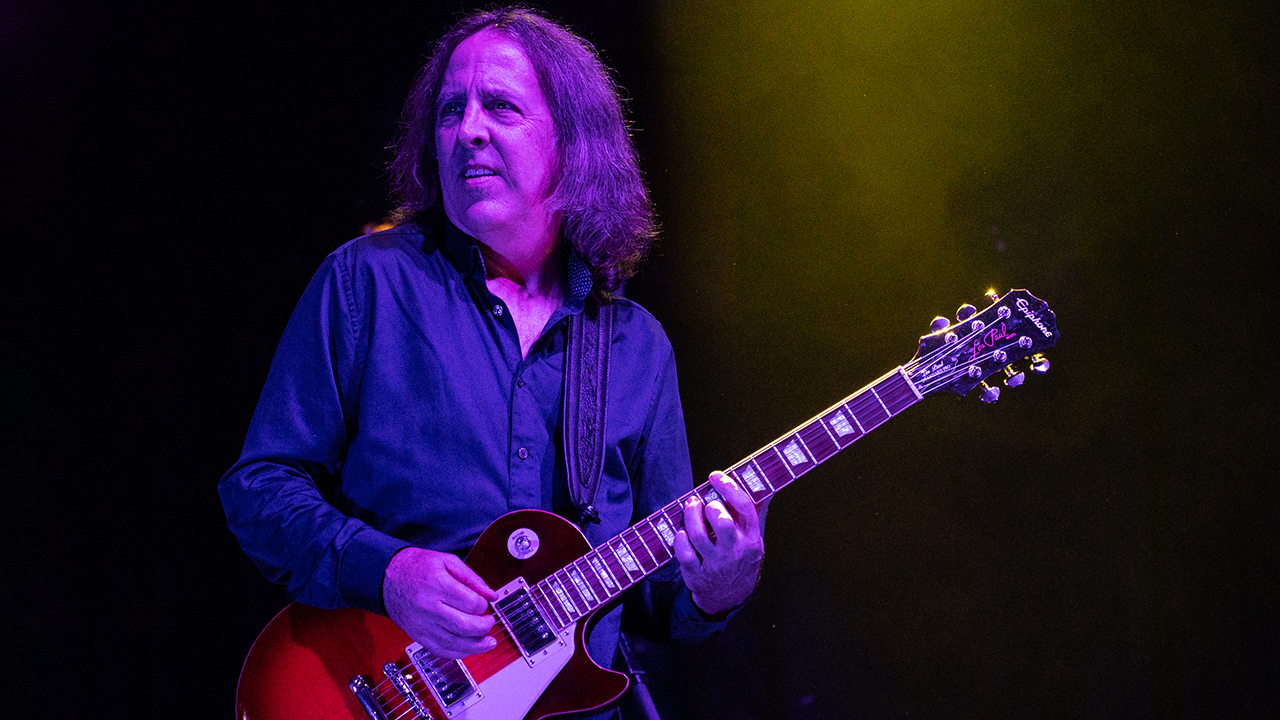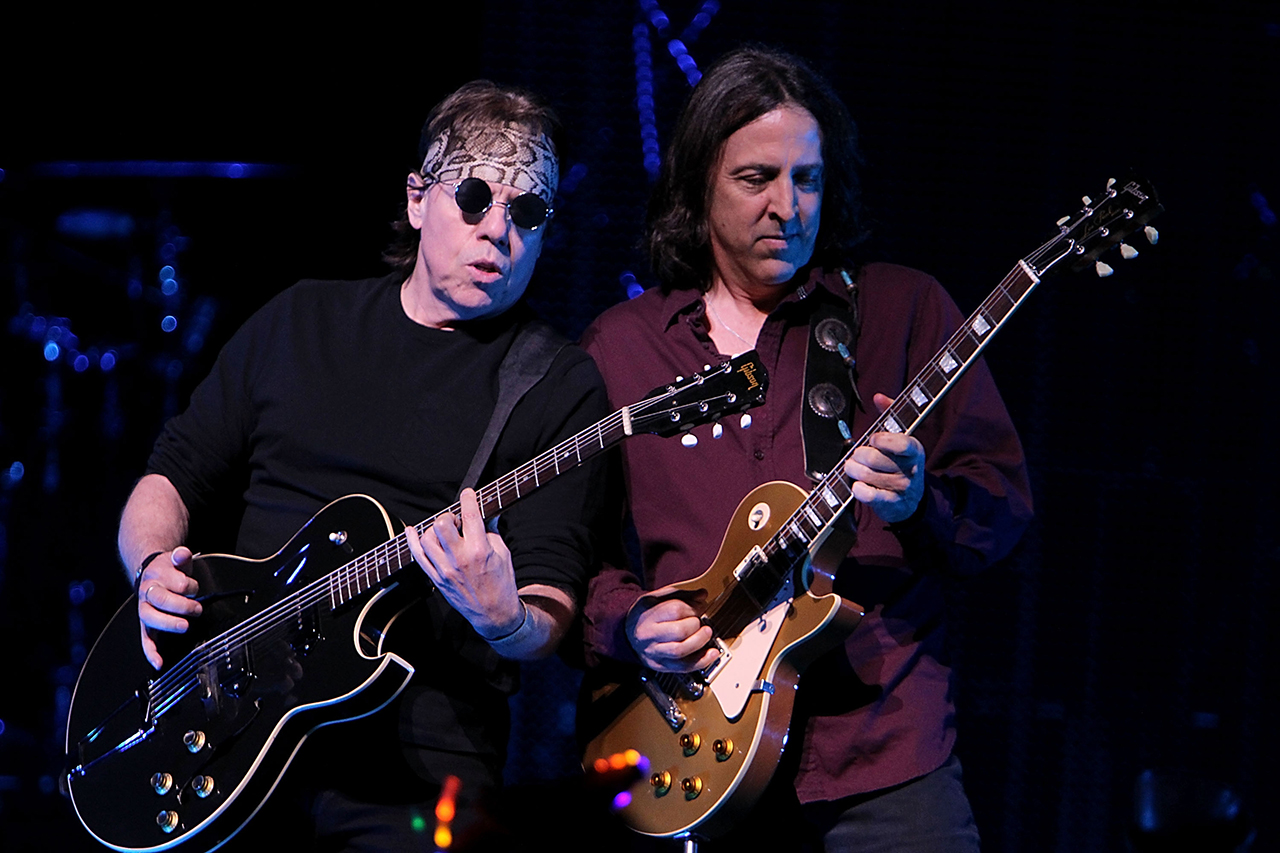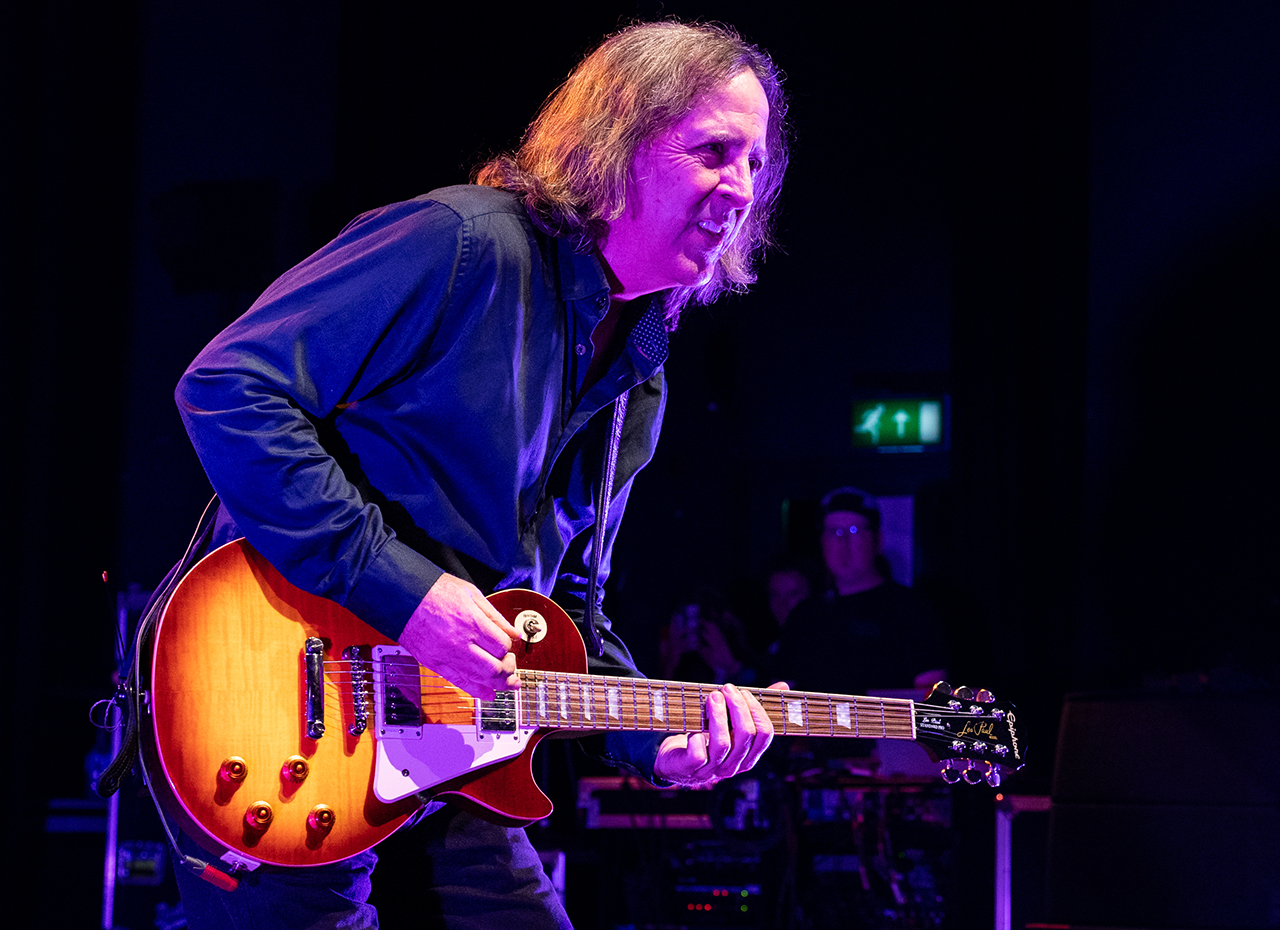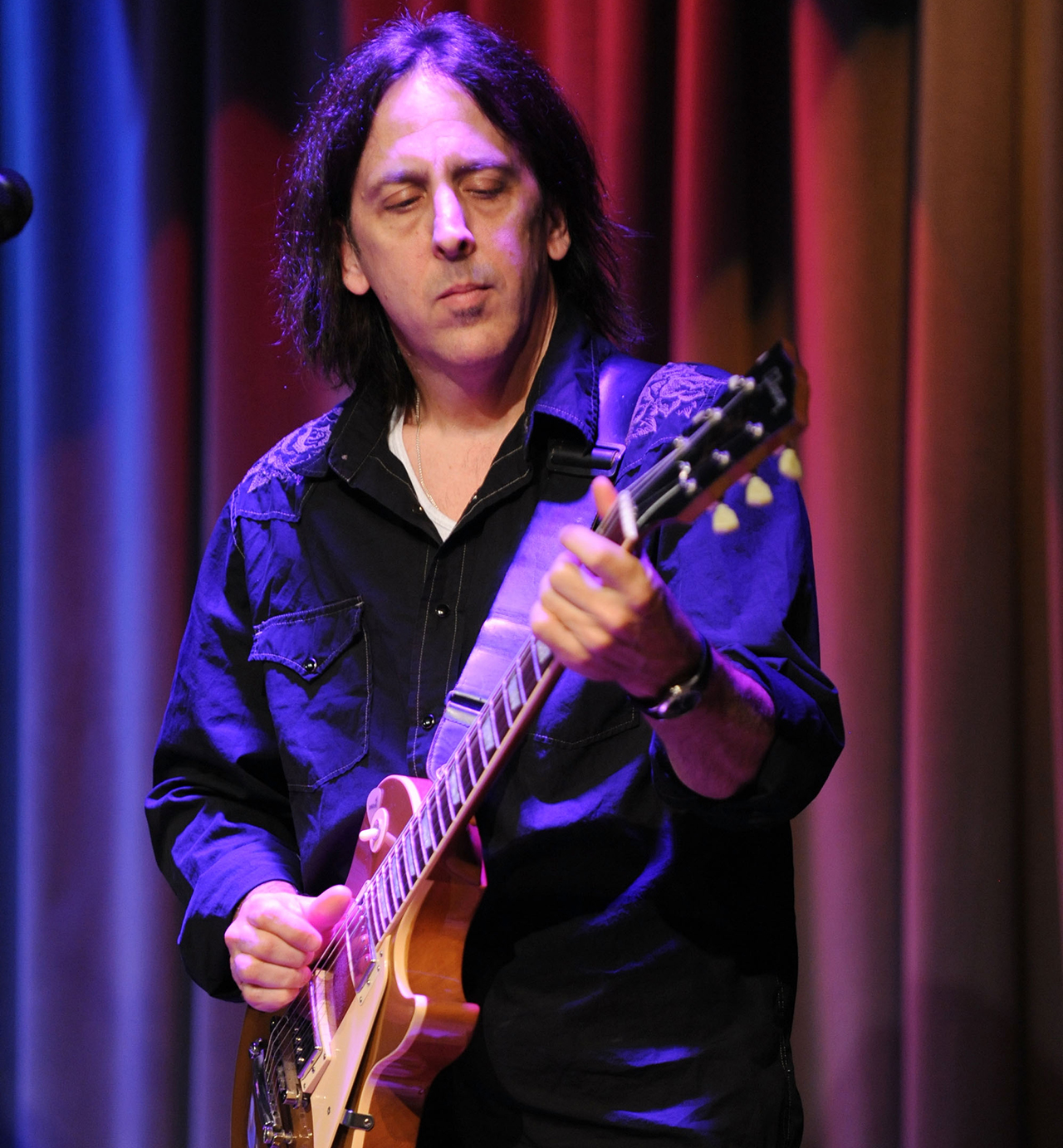“AC/DC signed my Strat. I had everybody sign it: Neil Young, Jeff Beck… When Angus saw Beck’s signature he said, ‘Oh, the bouffant!’” Jim Suhler on being married by Billy Gibbons, the advice SRV gave him and why he didn’t pay Joe Bonamassa for a sick solo
Best known as George Thorogood’s right-hand man, the Texan slide demon has racked up plenty of adventures with his Monkey Beat trio

Texas is home to some of the best guitarists the world has seen – and among the best are the underrated. Jim Suhler is primarily known for his lead role in George Thorogood and the Destroyers, but there’s more to his forceful talent for playing slide guitar, transforming that twang of blues into celestial quality.
Starting out in his trio, Jim Suhler & Monkey Beat, he’s gone on to work with incredible artists, collating extraordinary stories along the way. Those including a memorable encounter with Stevie Ray Vaughan, Billy Gibbons officiating his wedding, and Joe Bonamassa’s star appearance on Monkey Beat album Tijuana Bible.
Why did you gravitate towards slide technique?
“Initially it was Johnny Winter’s Captured Live! album. His cover of Bob Dylan’s Highway 61 Revisited really hit me hard. I remember going to a friend’s house and watching Dazed and Confused, sitting in his room listening to that; it just blew my mind.
“Slide came more naturally to me than anything else I was trying to do. I was also listening to Robert Johnson in my late teens and started trying to cop a lot of that stuff somehow.”
Monkey Beat’s second album Shake includes the track Snake Bit, where different instruments characterise a snake – slide movements up and down the fretboard, and 16th notes on shakers like a rattle. Was all that intentional?
“Probably only with the shaker! Not necessarily the slide – but now you mention it, yeah, I hear that! I remember cutting that solo. We did it at Compass Point Studios in Nassau in the Bahamas with Terry Manning producing.
Get The Pick Newsletter
All the latest guitar news, interviews, lessons, reviews, deals and more, direct to your inbox!
“He wanted me to use a particular guitar sound on the solo, but I wasn’t digging the sound at all. Man, he was right! Once I listened to the track it really fit well within it. I’m glad he overrode me that day. I’d never thought of the snake vibe with the guitar before, but I guess you’re right!”
What guitar did you use on Snake Bit?
“It was a ’93 Gibson Hall of Fame Les Paul Junior with P100 pickups. The neck got snapped – I was flying overseas and when I opened the case, it had snapped at the headstock. I had it repaired; twice, actually, but it was never the same. I really miss that guitar. It had such a great sound and great vibe to it.”
Was Monkey Beat a Gibson gig, or did you switch it up?
“On the first album Radio Mojo, any electric guitar you heard would have been a Strat. But the second album going forward I was using more Gibsons. More humbuckers and P90s, just for a little textual variation.
“There were times where a Fender was a little thin. I’m always trying to find a happy medium between Gibson and Fender. It’s a never-ending battle. It’s easier for me to make the Fender sound like a Gibson than the other way around.”
When you joined George Thorogood and the Destroyers in 1998, was it an easy decision?
When Angus Young saw Jeff’s Beck’s signature on my guitar, he said: ‘Oh, the bouffant!’
“My only question was: ‘When do I start?’ Things were slow – I was between albums and struggling financially. I’d actually thought to myself it would be nice to get a side gig with some big band. I got the call and started playing a few months later with them. I was elated. It was a very easy decision to make.”
How has George shaped you as a guitarist?
“First and foremost, George is an entertainer. Even before I was in the band, just watching him, I learned how to deal with the crowd and how to handle an audience. I had always liked playing with a second guitar player so that was easy. If George is playing one thing, I’ll find another thing to play.
“It’s not a ground-breaking musical idea, but learning how to listen, when to step up and when to stay back, is another thing I got with George.”

You opened for AC/DC in 2002. What was it like playing to their crowd?
“They don’t have a lot of patience for anything other than Angus – on the second show in Hamburg, the Black Crowes, who were opening, got booed off. The first show, we got into Bad to the Bone, then they were like: ‘Oh, those guys. I know who this is.’
“I remember AC/DC signed my Strat. I had everybody sign it – Neil Young, Jeff Beck… In fact, when Angus saw Beck’s signature he said: ‘Oh, the bouffant!’ They were great to us; gave us all kinds of access, like standing with the guitar tech. It was just a wall of Marshall amps for as far as you could see.”
How did you get Joe Bonamassa to appear on Monkey Beat’s Tijuana Bible album?
“Joe played on Deep Water Lullaby, which was a title I’d dreamed. A friend of mine – I didn’t know this at the time – had a family member who drowned. I don’t know where this stuff comes from, but it’s floating around.
“The song is very Hendrix, so I was thinking, ‘This really calls for a superhuman to play a solo beyond my abilities.’ I knew Joe, so I called him. He was coming from Houston and had a night off, but he was sick. He came out to the studio, did the solo and killed it.
“He did a couple passes, one with a Les Paul and one with a Strat; I think we used the Strat solo. I tried to pay him some money but he wouldn’t accept it. I’ve got a lot of love for Joe. We go way back; he was still riding around in a van when I met him before he ascended the stratosphere.”
Can you remember the first time you met?
“I was playing with George in San Diego in 2001 and Joe was opening. I walked in and hear this guy playing Cradle Rock by Rory Gallagher, and I was like: ‘Whoa!’
“First of all, Rory wasn’t that popular, so that had my attention. Second, he was absolutely killing it. We became friends from then on. Monkey Beat would do shows with Joe whenever he came through Texas or Oklahoma. He came down to Dallas and played the guitar show with me a few times; he’s a good friend and a good man.”
On a slightly different note, Billy Gibbons officiated your wedding.
“Yeah! The crew working for the Destroyers also worked for ZZ Top and they were still in touch with Billy. I knew our tour manager had been married by Billy; I think they were the first couple. I jokingly said to a crew member: ‘I’m engaged – ask Billy if he’d do it!’

“Then Billy called me, and I thought it was a prank call. I don’t know what he knew about me, but he did it. It was as nutty as you’d think it was. He took it very seriously and his mother, Lorraine, was there. Then we all went down to the Texas coast.
“Billy sent us champagne, chocolates and flowers. You haven’t lived until you’ve gone out on the town in Texas with Billy Gibbons. His influence is very big on me, personally as well as musically.”
I walked right past Stevie Ray Vaughan when my dad was talking to him
You’ve met Stevie Ray Vaughan – how did that come about?
“I never got to play with him, but I had seen him a bunch of times. I met him for the first time in ’89. We had a family jewellery shop in Dallas and Stevie had an old antique watch he brought in to get repaired. I just happened to be there when he came in; in fact I walked right past him when my dad was talking to him.
“My dad called me back and said, ‘Son, there’s somebody here you want to meet.’ And it was Stevie. I was in my late 20s, trying to get it together. I hadn’t met George at that point; so my dad asked him: ‘Do you have any advice for my son?’

“I was really embarrassed by that at the time, but Stevie said to me: ‘Yeah, keep it clean.’ To me, one of the greatest parts of his legacy was his sobriety and him helping others through that journey as well.
“He never come back to get his watch, so in 1990, the last time he played in Dallas, I took the watch out to where he was playing, got backstage and gave it back to him. He did have a light – an aura or energy – about him. It was palpable. It was real and he was very powerful. God bless him; he was a great man.”
Naomi Baker is a contributing freelance music journalist for GuitarWorld.com. After interviewing the legendary Mick Wall for her dissertation on rock journalism’s evolution, she now pursues her passions for writing and rock music. Naomi plays guitar and bass and loves nothing more than scrutinizing artists who heavily shaped and paved the ways of rock. She revisits music played extensively throughout her childhood daily, with acts like Thin Lizzy, The Darkness and Queens of the Stone Age top of the list.





![[from left] George Harrison with his Gretsch Country Gentleman, Norman Harris of Norman's Rare Guitars holds a gold-top Les Paul, John Fogerty with his legendary 1969 Rickenbacker](https://cdn.mos.cms.futurecdn.net/TuH3nuhn9etqjdn5sy4ntW.jpg)







